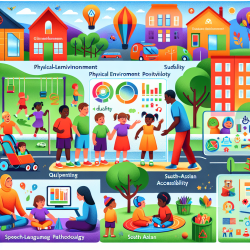Understanding the Mental Health Impacts of Tornadoes
Tornadoes are one of the most prevalent natural hazards in the United States, yet their mental health impacts have been underrepresented in the disaster mental health literature. A recent systematic review titled Mental Health Impacts of Tornadoes: A Systematic Review provides valuable insights into the psychological consequences of tornado exposure. This review analyzed 29 studies with 27,534 participants, identifying four broad areas: mental health impacts, risk factors, protective factors, and interventions.
Key Findings for Practitioners
The review highlights several adverse mental health symptoms associated with tornado exposure, including post-traumatic stress disorder (PTSD), depression, anxiety, and substance abuse. These symptoms can persist for months or even years, affecting both adults and children. Understanding these impacts is crucial for practitioners aiming to support affected individuals effectively.
Risk Factors to Consider
Several risk factors contribute to negative mental health outcomes post-tornado, including:
- Demographics: Gender, age, and ethnicity can influence vulnerability.
- Socioeconomic status: Lower income and lack of insurance exacerbate mental health issues.
- Previous trauma: Prior exposure to trauma increases susceptibility to adverse outcomes.
- Access to services: Limited access to mental health services hinders recovery.
Protective Factors and Resilience
On the flip side, several protective factors can enhance resilience and improve mental health outcomes:
- Social support: Strong social networks provide emotional and practical support.
- Optimism and hope: Positive outlooks contribute to better recovery.
- Access to resources: Availability of physical and psychological resources aids in coping.
Effective Interventions
The review also identifies interventions that have shown promise in supporting mental health post-tornado. Two notable programs are:
- Journey of Hope: A school-based program focusing on emotional management and social support for children.
- Bounce Back Now: A web-based intervention targeting PTSD, depression, and substance use in adolescents.
These interventions highlight the importance of targeted support for children and adolescents, who are particularly vulnerable to the psychological impacts of tornadoes.
Encouraging Further Research
While this review provides a comprehensive overview, it also highlights gaps in the current literature. Future research should explore the mental health impacts on diverse populations, including the elderly, people with disabilities, and the LGBTQ community. Understanding these nuances will enable practitioners to tailor interventions more effectively.
For practitioners working with tornado-affected communities, these findings offer a valuable framework for improving mental health outcomes. By considering both risk and protective factors, and implementing evidence-based interventions, practitioners can play a crucial role in fostering resilience and recovery.
To read the original research paper, please follow this link: Mental Health Impacts of Tornadoes: A Systematic Review.










